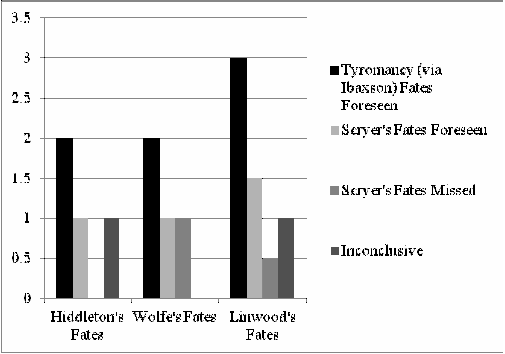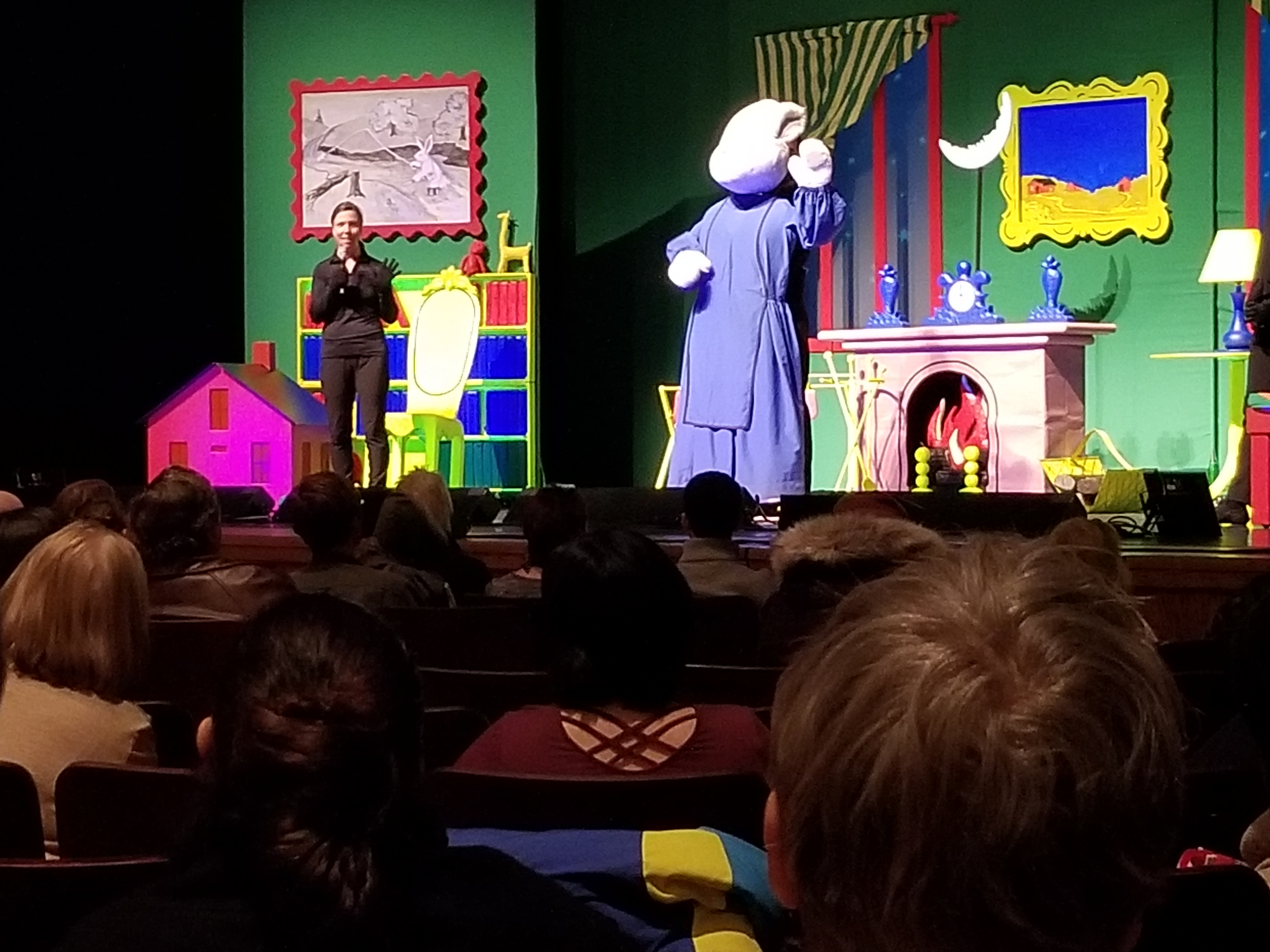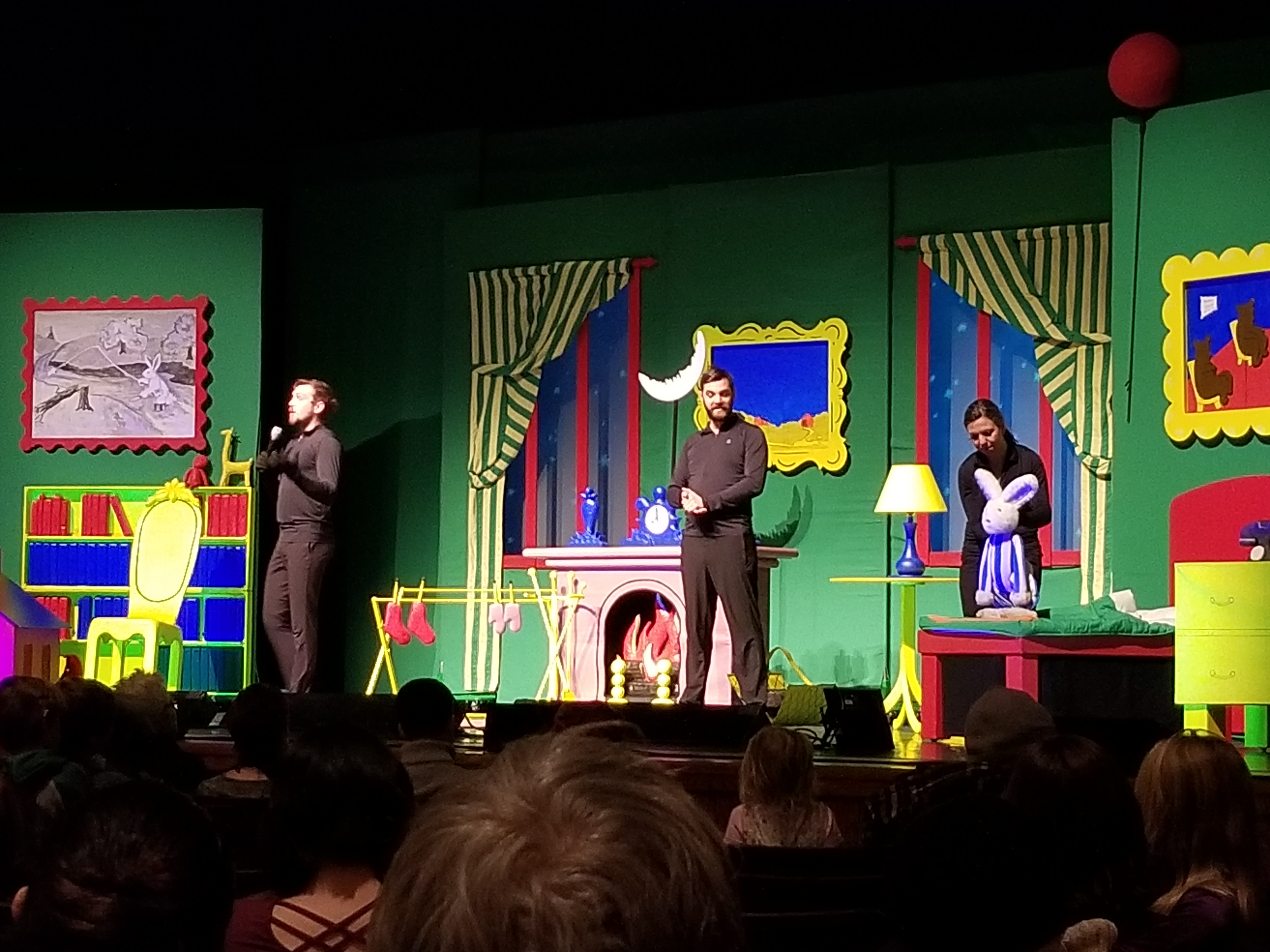



































































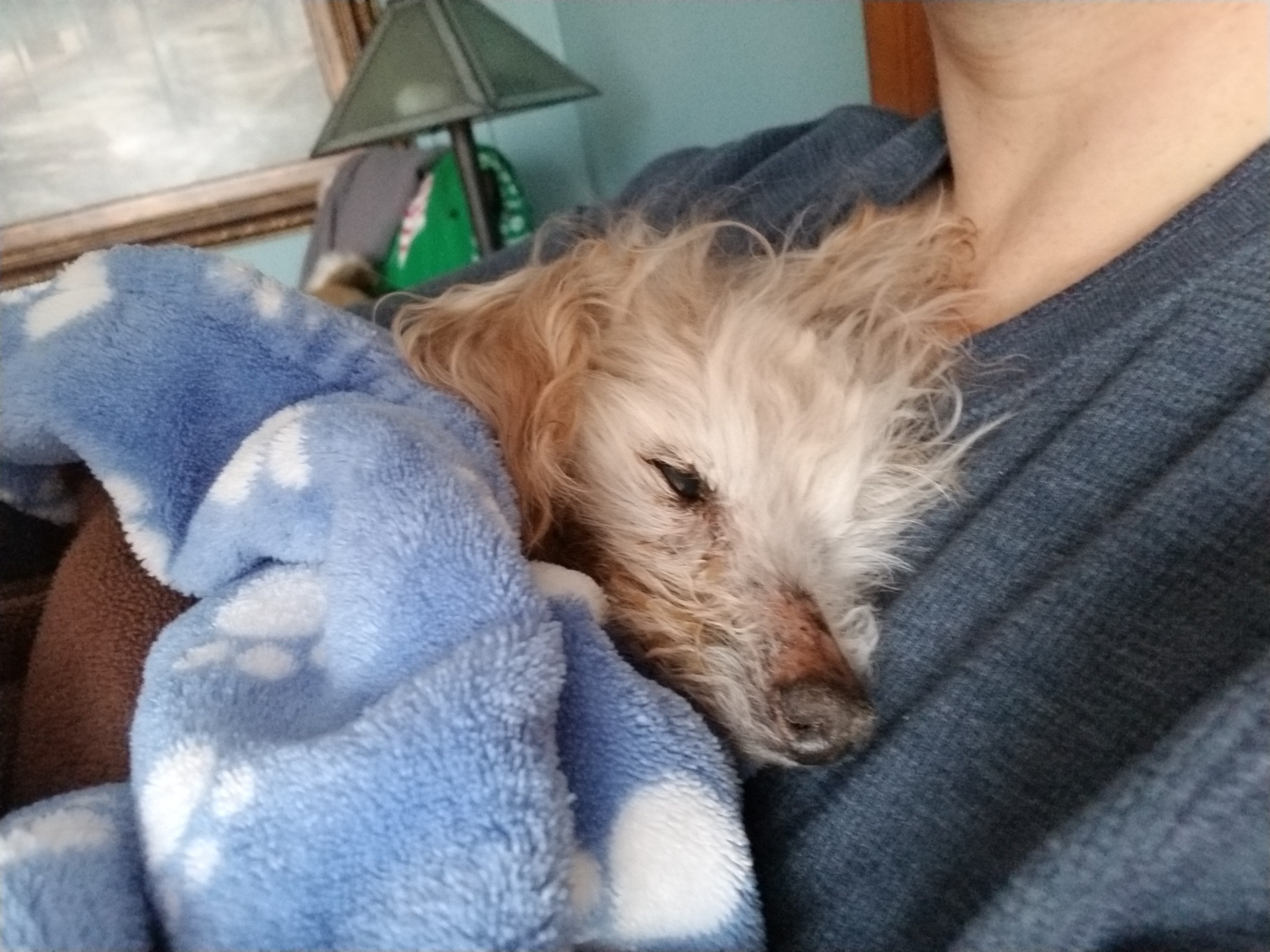 In Loving Memory of Timmy Steffen
In Loving Memory of Timmy Steffen
Born April 1, 2002
Adopted August 22, 2009
Died January 17, 2018
This is the story of our oldest dog, our gentlest and quietest dog, who lived much longer than anyone expected. This is the story of Timmy the apricot poodle.
Timmy’s Life
Bringing Him Home
Our city allows up to three dogs or cats, and we were interested in getting one more dog to go with the two we already had–Mikko the white poodle, and Aria the black-and-white papillon. So, we took a trip to local poodle rescue Picket Fence Poodles, where we had adopted Mikko the year before.
There were several dogs available at the time that we did a meet and greet with. Before we met any of them, I had Rosie the one-eyed Pekingese in mind, because I thought that a one-eyed dog might have a lot more trouble getting adopted than the other dogs in the group, but Heather had her eye on Timmy. There was Jasmine, Timmy’s littermate, who was still so timid around people that we barely saw her. And there was Timmy, bouncy little ball of energy, despite being seven-years-old and already with some health problems. We took Mikko and Aria along for the visit to try to spot any social issues that might arise with different choices, and Aria and Rosie did not get along together, at least on that visit–they both tried to boss each other around, and so we thought that that might not be a good choice.
Timmy took to us, and Heather in particular, right away–enthusiastic, energetic, just like a puppy. He cuddled right up with the other dogs on his first day. His fur was red, almost an apricot color, with some lighter patches that turned almost white on his hair and chest when he got older (it never ceased to amuse me when he wore sweaters and his white chest hair stuck out of the neck). He had lived his first seven years as a breeder at a puppy mill and even had a USDA numbered chain around his neck, and many of his teeth were already rotten from lack of care, but despite a rough and neglectful first seven years, he was never afraid of people, and had an infectious puppy-like energy. We decided he would be a good match for our other two energetic dogs and we took him home with us.
Timmy immediately became Heather’s shadow. He would follow her from room to room when she was doing laundry or whatever other things around the house. If she left a room when he didn’t see, he would bound from room to room like a little deer until he found her again. If we needed to find him, like if I needed to take him outside, then I would just need to yell “Tim-a-Tom-a-Tim-a-Tom!” and he would immediately bound toward the source of the cry, ready for whatever I needed him for.
His hair was course, almost wiry when we first got him, probably from the utilitarian diet of the puppy mill–his hair softened up before long.
Timmy fit in with the other dogs right away, loving to roughhouse and bask in the sun and go for walks. Timmy loved to follow what the other dogs were doing, and they welcomed him into the pack immediately. Timmy was never interested in being the alpha of the group, and he was content to follow the others, so there weren’t any hierarchy struggles like you sometimes get when you integrate a new dog.
Since Timmy didn’t fight for a higher place in the pack hierarchy, I was surprised that when he went on walks marking was always very important to him. No matter how long you walked, he would always have a little pee left in the tank for more marking, even if he had marked two dozen spots already. When we had Aria, Mikko, and Timmy, they would sometimes all pee on the same spot one after the other–Mikko first because he didn’t care, Aria because she wanted to cover up his spot, and Timmy because even though he didn’t care about the hierarchy in general, he wanted to have the last word. We kept going, wanting him to empty his tank, and it would take quite a while, much longer than the other dogs who would always empty their bladders within a couple pees. But he was never one to have accidents in the house (until he got older and was on diuretic medicines).
Shortly after we got him, we had to have quite a few of his teeth pulled, so that the rotten teeth wouldn’t spread infection and cause bigger problems elsewhere in his body. We were worried about the surgery, but he was better than ever afterward, ready to chew on bones with whatever teeth he had left immediately afterward.
With the Other Animals
With Aria
The very playful Aria always wanted to play with him, and he loved to play when he was younger, but Aria was SO rambunctious she would scare him. They would roughhouse a little, doing play-growls and circling each other, rearing up to grapple with each other, but then Aria would perform her favorite roughhousing move– flip over on her back and piston her legs up in the air and he would get scared and run away, leaving her wondering where her buddy went.
Aria was the pack leader when she was with us, and Timmy was content to let her have that role, though he would defend a bone that he’d claimed if necessary.
We never expected that Aria would pass away before he did, but she passed away unexpectedly when she was only five. We noticed after she passed that he wouldn’t bark for food in the same way; he must’ve fed off of her excitement.
With Mikko
Mikko and Timmy took to each other immediately–always ready to roughhouse, they would play-growl and rear up on their hind legs and chase each other around and tip over. Mikko always wanted to fight for a higher spot in the hierarchy, always ready to challenge, but it probably helped that Timmy didn’t really care about that.
With Violet
Violet and Timmy always got along pretty well. Both dogs are mostly pretty mellow. The only exception would be that, as Timmy got older, when he tended to wander aimlessly from room to room, he would sometimes stumble across wherever Violet was sleeping and she tended to get scared and defensive when she was suddenly woken up. But apart from that they always got along.
With Cooper
Cooper dislikes all dogs, and wants nothing to do with them, and would rather all dogs stay away from him. Except for Timmy. Timmy he was absolutely enamored with, for some reason. Probably because Timmy was indifferent toward him. Timmy was happy to be around anyone, except Cooper. Maybe it’s just because Cooper jammed his nose up Timmy’s butt one too many times, but Timmy just wanted Cooper to stop pestering him.
With the Cat-in-Laws
Timmy and the cat-in-laws generally did not interact much. I’m sure part of this was that the cat-in-laws weren’t adopted until Timmy was already 14 or 15 years old and so wasn’t interacting much with the dogs either. For the most part the biggest interaction was that Lucy would pick a spot to sit and if he wandered near her she might bat at him, but I really don’t think he knew she was there, and so it was pretty scary to suddenly get slapped around by someone he didn’t know was even there.
With the Kid
The kid was born when Timmy was about 11 years old, so he was still pretty spry and able to go for walks for the kid’s first few years. Timmy was always the kid’s favorite because the other dogs learned to be scared in the rampaging toddler stage and so would try to be scary as a deterrent. Timmy got used to the kid before the other dogs, partly because he was still Heather’s close shadow at that time, and for that maternity leave and the rest of the first year Heather sat in the kid’s room to pump breast milk. Timmy always wanted to sit on the chair with her while she did that, and so he was around the baby a lot. But Timmy never got mad at the kid, even though the kid would often accidentally kick Timmy for not watching for him. The kid even walked Timmy sometimes, because Timmy was mellow enough that we weren’t afraid of the leash slipping away. Timmy was the easiest one to practice gentle hands on, and the kid said he was sad when Timmy went to heaven, though he also said he was excited to get a new dog (but we told him we didn’t need to rush into it).
What Made Him Special
Gentle
I have rarely met a dog as gentle as Timmy. Except in very specific, unusual circumstances, he was always very slow to anger, and even slower to act aggressively even if frightened or intimidated. He was the one dog that we would leave out of his kennel when we let a contractor into the house because he never barked at people or showed any signs of aggression. He would just mosey around the house, eye the newcomer curiously, but otherwise leave them alone and just stay out of the way.
On Halloween, he was the only dog we left out, because the other dogs would bark when they saw people approaching the door and that would scare the kids. Timmy would just hang out in the room, not even fussing about his dragon costume, and kids would comment on how cute he was.
Whenever we had guests over to our house, our other dogs would always have an adjustment period to go from freaking out about these new people in the house to finally accepting their presence and calming down. This sometimes bothered guests, especially if they were only there for a short time or if they came in and out of the front door to get things from their car, because the adjustment period clock would restart all over each time. But Timmy just accepted whoever came in and however often, and so he would always make new friends whenever we had guests, who would often comment that they wanted to take Timmy home with them.
His fur was never very thick, and the winter cold would bother him. But he also didn’t mind wearing sweaters. The other dogs would be indignant and rebellious if you put a shirt on them, but Timmy didn’t mind, and he certainly liked to be warmer.
When Timmy farted, it would always be a dainty little squeak that was barely audible.
Loving
He was Heather’s shadow. He loved to cuddle, except during the times when his coughs were bothering him. In bed when he was younger he would cuddle up against Heather’s neck or in the small of her back, reassured by her touch.
He was so excited to get on the bed every time to sleep, he would stand on his hind legs by the edge of the bed and just hop-hop-hop to try to get up. He never got his back legs more than, like, 4 inches off the ground, but that wouldn’t stop him from trying repeatedly every night: hop-hop-hop. If he saw you reaching to pick him up he would hop right into your hands too (which you had to learn to be careful of, or he’d slip right out!).
When Heather took a bath at night, and he didn’t see where she went, he’d run into the bathroom and stand on his hind legs to peek into the tub to make sure he knew where she was, then he could settle down again.
He was always the best traveler of our dogs. He would settle down and just cuddle up and sleep against Heather or another dog in the backseat. He was never particular about where he sat, like Mikko, and he never got carsick like Violet.
Joyful
Timmy had a hard first half of his life, but he was such a joyful dog, finding pleasure in the small things. An afternoon spent basking in the doorway in a beam of sunlight until he was panting from the heat of it. His happy bounding when he ran from room to room was one of the most wonderful sights. He loved to chew bones, even if sometimes he really preferred the secondhand bones that were already soft and gummy from dog spit, so while another dog was chewing he’d stand and stare at them until they lost interest, and then he would take his chance.
Timmy was never one for sweet treats, maybe because the sugar would bother his bad teeth. But he was always the first in line if someone started slicing a cucumber, and crunchy cranberry liver treats were his favorite for a long time.
A walk, whether up the street or at the park, would always be a major source of excitement. When he walked, he was always the one dog that would walk as straight as an arrow along the path you were going on, apart from brief marking detours. Mikko always zigzags, Violet always wants to walk beside you, and Aria always strained against the leash, but Timmy would walk the same speed as you directly along the path with his little tail pointed straight up like a radio antenna.
While he was never a big barker at people as the other dogs always have been, Timmy did still love to bark. He would bark for his meals (especially before Aria passed). He even did this odd little move where he would prod your leg with his nose while he was waiting for a meal–it took us quite a while before we figured out what that poking sensation was, but it was Timmy’s nose every time.
If he saw Mikko and Aria barking he would always want to bark, too, but he wouldn’t pay a lot of attention to where they were barking. It wasn’t unusual for all three dogs to be barking, but in all different directions: Aria on the couch looking into the back yard, Mikko at the front door barking at a passing car, while Timmy was pointed at the bedroom even though there’s never anything to bark at in that direction. But he didn’t care, it was all part of the fun.
Timmy’s bark was a gruff little bark, much different than the shrill nail-in-the-ears bark of Mikko. He could bark all day and it wouldn’t bother me. He even barked occasionally when he was older, sometimes you’d hear his gruff little ruffs from the kennels when you got home.
His stiff little tail would wag as regularly as a metronome almost all the time, and certainly whenever there was any excitement. If the excitement died down and his mind started to wander, you could almost see his attention shifting gears because the metronome would start to wind down, still moving but slower and slower as his eyes wandered to other things. But then if you said his name again or one of the other dogs barked it would kick it at full rhythm again.
He did this weird little stretch with his back legs where he would extend one back leg straight backwards from his butt, then switch to the other leg, and repeat that 3 or 4 or 5 times. The rate of the switching was a function of how excited he was, sometimes you could get him riled up with some vigorous petting and he’d do it really quick like an aerobics routine.
Tough
He was never interested in being the alpha, but when there was something that he felt was worth fighting for, he would. Usually this was to keep hold of a bone. Or trying to get Cooper’s nose out of his butt.
He had so many medical conditions all fighting for each other by the end, and until the very end he just kept on pushing through them, so much longer than anyone would’ve expected. He was only about five pounds most of his life, but he could fight.
Stubborn
When one of our other dogs are worked up about something, we would usually be able to distract them. By petting them, or giving them a treat, or in extreme cases bundling them up in a blanket. Timmy, when he was worked up about something, seemed to turn into a ball of legs that could kick in every direction at once. Never would this become more obvious than when his phobia of flashing lights kicked in. We don’t know why he was scared of flashing lights, but our theory is that he might have been exposed to the weather during thunderstorms and always thought that flashing lights were lightning.
During thunderstorms, Mikko would always sleep through unfazed. Aria or Violet would be nervous and would want to cuddle. Timmy always wanted to run and hide (usually behind a toilet), and no amount of comforting would convince him otherwise. After a lot of broken sleeps and frustration, we discovered that the only way to calm Timmy down was for me to take him to the basement and cuddle him up to my belly under a blanket on the couch. It wouldn’t work if Heather tried it. It wouldn’t work if I tried it on our bed or anywhere else. It had to be that couch, and it had to be me. I don’t know if he was just comforted by the routine action of it, or if he associated the smells of the couch and blanket with safety, but once I brought him down there he would almost always calm down and then we could all get some sleep.
In the winter, the strobe light on the snowplow would trigger the same phobia if Timmy happened to notice it. So, if one of us woke up to the sound of the snowplow scraping, then it would save a lot of trouble if we would remember to put the blanket over Timmy’s head to block the light. (This wasn’t entirely reliable, because the blanket on his head would sometimes wake him up and then he’d want to see what was happening)
This posed a real problem with trying to get a decent photograph of Timmy because a bright camera flash would also trigger his phobia. The camera we had at the time we got him wasn’t a problem, but we got a bigger camera with a bigger flash a few years later and that one scared him. This made it nearly impossible to get him to sit still for a photo, bribery with treats didn’t even make any difference. We got portraits done with the dogs when the kid was an infant, and the photographer didn’t listen when we told him that we would like to take dog pictures first before Timmy realized what was happening. The photographer claimed he was so good with dogs there would be no problem. Predictably, the photographer was wrong, having never met that dog before that day and claiming that he knew how the dog would react, and so Timmy looks terrified. We took portraits with the dogs again this last year before Christmas, and his vision had gone enough that the flashes didn’t bother him anymore. We were very glad we got that portrait in.
Our tiny little dog was so stubborn that as he got older Heather would accompany him to the groomers for two-hour appointments so she could corral him while he was getting groomed, because he would otherwise have coughing fits that would magically clear up as soon as the thing he didn’t like stopped, or he would deploy his “ball of legs” move.
When driving on car trips, if we happened to get a whiff of skunk in the car, the other dogs never cared, but no matter how deep of a sleep Timmy was in, he would always perk up and sniff the air. His sense of smell never faded.
While he was always a gentle dog, and almost always a sweet dog, he did have a spiteful streak that would come out occasionally when he was younger. If you were making him do something he didn’t like, he would find something in the house to mark, and then he would stare you in the eye as he was doing it. It would’ve been funny if he weren’t at the time saturating something with urine–he didn’t do this as he got old, probably just lacking the energy for such spite.
The Sad Part
We adopted Timmy knowing that his time with us might be brief, between his advanced age and neglected health. We figured that if we got two or three years with him that we would be exceptionally fortunate. We would never have guessed that Aria would pass away before he would or the he would last more than eight years, almost to the age of 16.
As he got older, he had issues with a variety of health conditions. One condition that caused him problems for several years was a persistent cough. Sometimes it was dry, but most often he would cough several times to work his way up to what almost sounded like vomit, but was really a wet throat clearing. There was a stretch of time where it was hard to even pet him because it would tend to trigger coughing. He stopped playing with Mikko because they would play for a few seconds and then Timmy would have to take a cough break. It wouldn’t be unusual for him to wake up in the middle of the night and do it for a while and we found a few coping mechanisms to help him deal with it. If you rubbed his shoulder blades in the same rhythm as his cough it would sometimes distract him enough to settle back down. Sometimes if I took him to another room, to the couch downstairs or to the kid’s room, the change in scenery would be enough to distract, or if I took him outside. After a while the vet discovered that he had an enlarged heart from congestive heart failure, and the fluid swelling in there was causing his heart to press against his trachea, which made it collapse sometimes. Some heart medication helped this immensely, with diuretics to draw the fluid out. This also made him have to pee constantly and so even though he’d gone so many years without having any accidents in the house, he just couldn’t hold it long enough to wait anymore, so we started putting diapers on him all the time while he was awake. He was small enough that we could use size 1 baby diapers and wrap them around his midsection like a wrap–which was handy because they were much cheaper than dog diapers. During the day we set up an exercise pen with piddle pads so he could pee whenever he wanted to without it being a big trouble. He could sleep through the night fine without peeing, he was never incontinent, so we could let him air out a little bit then at least.
He never had very thick fur, and he was always pretty sensitive to the cold. Wearing sweaters for most of the winter would help with this, and he never seemed to mind wearing them. But he got more and more sensitive to the cold as he got older. Until, the winter when he was 14, we decided we didn’t need to let him outside at all that winter. Every time he went outside he would shiver for a long time afterward and it would take him a long time to recover. He’d already been wearing the diapers for peeing for a while, and we just dealt with the poop when it happened, trying to get him to the hardwood when possible.
He lost his hearing completely. It was a sad day when we realized that he couldn’t respond to the call of “Tim-a-Tom-a-Tim-a-Tom” anymore.
He also had more and more vision problems. First he became super sensitive to bright lights so that he couldn’t even enjoy his beloved sun-basking anymore. Bright lights would make him flinch in what looked like a very painful way, and if lights were too dim he wouldn’t be able to see at all and he would bump into things. He still seemed to be able to see shapes in the right lighting, and he could walk from room to room without running into anything, and find his way to the water bowl. In December 2016, after the Christmas tree was up, he wandered into a low-hanging branch and the tree needles poked his eye, and we had to deal with some ointment to make sure that healed up. We learned to put low barricades of boxes around the tree to keep him away from it.
In his last year he was prone to wandering at night. He would sleep for much of the day, but around 8 or 9 pm, he would want to start wandering. He would usually do laps between the living room, kitchen, and dining room. We’re still not sure what drove him to do this–if he thought he was lost or if he just wanted to walk and didn’t have anywhere in particular to go. We would try to soothe him at first, let him know where we were so he didn’t feel alone (especially given how he was so much Heather’s shadow when he was younger), but he would always get up and start walking again. So, we put him in front of the water to make sure he had something to drink, would maybe offer him some food, and we’d just let him wander. Sometimes he would get stuck in corners, not sure how to get out, so we would help him find his way. Generally he would settle down very well for bed, so I don’t know if that exercise helped him work out his restlessness. I suspect that it helped him keep his muscle mass up at least because otherwise he slept so much of the day I think his muscles might’ve atrophied to the point where he couldn’t walk.
Although he never lost the ability to walk, his muscles did get weaker and weaker, probably partially from being inactive for much of the day, age, and trouble eating. When he stopped having the endurance to walk at the park I would still take him a block up the street, until he started turning around at the mailbox and looking longingly back at the house–I didn’t make him keep going when he didn’t have the energy. We bought a dog stroller we could put him in to take him to the park but his light sensitivity was so extreme by then that he still didn’t do very well at the park. We started to have to carry him up and down stairs, and between that and his vision problems, him falling off of things and hurting himself was an ongoing danger. One day he fell off of a chair, just from the height of a normal chair, maybe two feet off the ground, and immediately after he tried to get up and walk but he dragged his back legs and we were afraid he had paralyzed himself. We brought him to the vet, they found a hairline fracture, but not anything they could do anything about. We couldn’t put him on furniture without someone holding him after that. We had installed a baby gate when the kid was young, and we have left it up since then because it prevented Timmy from falling down the stairs. The hardwood floors became harder and harder for him to walk or even stand on, and even on carpet his gait took on a strange bouncing rhythm with his front legs walking normally and his back legs taking odd little hops.
He always like lying in dog beds, but as he got older, he was less and less particular about how much of him and which specific parts got in the bed, so he’d often only have his butt in the bed, or only his head, or just one elbow.
The dogs sleep in our bed, in a line between us, and Timmy slept up by our heads so that if he got up to wander in the night he would have to step on someone before he walked off the bed, so we would either feel it or Violet would growl when he bothered her, so we could get up and help him with whatever he needed. We started putting him in a dog bed on the bed because that would help him sleep but it did make it more crowded in the bed. Especially in the last year, I would often take Timmy to the kid’s bedroom, where I would sleep on the floor with him in a dog bed next to me, because I wouldn’t need to worry about him falling in there, and he would often sleep better in there anyway, without us jostling him.
From the time we got him, his teeth were a problem. We had to have several teeth pulled immediately, and we had to repeat the process several times, always afraid that he wouldn’t wake up from the general anesthesia when he woke. It was important to pull them when they got too rotten because the infection could spread to other parts of his body, including his brain–sometimes we could tell it had gone a bit too far because he would discharge a milky fluid from his nose. For the first five days of every month he was on an antibiotic course to try to limit infections, and even then sometimes we had to start it a bit early or go a bit longer to quell a rising infection. His last tooth pulling was a few years before he passed–after that one he was down to just three teeth, including one gigantic lower canine tooth that was so big and so deeply rooted in his jaw that they were afraid that they would break his jaw trying to extract it.
A recurring problem partly caused by the teeth were that he became pickier and pickier about food. Early on, he was happy to eat the same thing the other dogs were eating–some kibble with maybe some soft food. But for Timmy we had to rotate foods periodically, or he would get bored and would stop wanting to eat it. If he missed the occasional meal it wasn’t a big deal at the time, because he had a bit of extra weight on him. But the missing teeth, rotten teeth, and picky appetite, this was a frequent battle we had to fight, and especially when we traveled we would have to make sure we had something he would eat. If he missed a couple meals, then his belly would start growling and bothering him, but this made his appetite worse not better, so that was always a downward spiral we had to watch out for. We would supplement with people food to get some food in him and then switch back to dog food again. By the spring of 2017, he was pretty much done with dog food, we couldn’t get him to eat it anymore at all, and he had a bout of diarrhea that the vet thought might be a sign of end-of-life. We braced for the end, trying to decide from day to day what we should do, how long we should let it go on before we made the hard decision. We ended up putting him on people food for every meal, though we were advised against it by our vet because it doesn’t have the proper nutrition for a dog. But at that point we had the choice between feeding him what he would eat or letting him starve to death. His most reliable meal was a brand of honey-battered chicken nugget we could find at Target, so reliable that he rarely missed a meal for months, for most of the rest of 2017.
A few years ago, he was also diagnosed with kidney failure. Among other things this meant we had to be careful how much other medications we gave him, so we tried to taper his dose down on the diuretic in particular.
Between the diuretic and the rotten teeth, Timmy would have trouble staying hydrated enough, and dehydration would make all of his other conditions worse. We asked the vet for suggestions, and they said that subcutaneous fluid might help him stay hydrated. They taught us how to inject saline under his skin, and we did that ourselves for a while, and Timmy took it pretty well for a while. After a month or two, he started to get more squirrelly when we were doing it, and he would get afraid when we got the stuff out to do it, we eventually started taking him for a weekly vet visit to have the vet techs administer subcutaneous fluids. This became a part of our weekly routine, and the vet techs were very close to him from their weekly visit from Timmy, where he would frequently become the stubborn ball of legs, but they were able to handle it, and every week he would perk way up from the fluids.
Around Christmas, we thought he might have poked his eye on something, so we took him in to treat him for that. His appetite started getting a little shaky, and we weren’t sure why, maybe it was the cold weather that was having some days of negative highs. After he’d been on some eyedrops for that for a while, Heather noticed that his breath smelled terrible, and so we got him on an antibiotic dose right away, his tooth had probably been bothering him. Then the antibiotic probably was making him feel ill, and so the appetite problems continued. He would no longer eat his beloved chicken nuggets, and he was even having trouble eating food on his own, so I would have to hand feed him to get him to eat anything. This was difficult because, if the pieces of food were too big he didn’t have the teeth to chew them, but if they were too small he would have trouble gripping them enough to keep them in his mouth to eat them. Arby’s roast beef was the sweet spot because he could still smell the warm meat, a wad of roast beef was easy to pick up, but the thin layers would tear apart as he chewed them so he wouldn’t choke. Chicken McNuggets were another mainstay in those days.
But his digestion and appetite continued to get worse and worse, and he had more trouble eating and less interest in it. Because he was eating so little his bowel movements became less and less frequent, until several days passed between. The vet said that the best way to help him was just to keep him hydrated, so we kept taking him in for fluids, which helped a little bit, but not enough. He took less and less even of his favorite people food, and slept more and more. We decided that we wouldn’t try to force-feed him, that would only cause distress and discomfort, if he wasn’t going to eat he wasn’t going to eat. We made it to the end of the antibiotic course, and we hoped that with it over his appetite would improve, but it didn’t and it soon became clear that we needed to schedule his last vet visit.
The day before the scheduled day, I was sick and I spent the day home with him cuddling for most of the day, making sure he was as comfortable as he could be. If he passed we didn’t want him to pass in his kennel by himself while we were at work. That night he perked up some, enough for some decent pictures with us, but still wasn’t eating. The next day, the day of the appointment, he was very out of it, barely awake at all. He didn’t seem to be in pain, but he was clearly very weak. We took him to the vet, and they laid out a towel for us to wrap him in. He was so out of it at that point that he wasn’t even worried about being at the vet. He passed away peacefully with both us with him, touching him and comforting him to the end.
We are comforted to know that it was the right time. Every time we were told this might be the end, we tried to give him a chance to recover, and so many times he did and then was able to be back to normal for a while. This last time, waiting any longer wouldn’t have helped. He was tired and uncomfortable, and he was ready to go.
A broken routine
even inconvenient
marks a lost loved one.
I had a lot of trouble sleeping that night. His comfort had taken precedence for so long, with the bulky dog bed, and sleeping on the floor, and getting up with him so he wouldn’t wander in the dark and bump into walls looking for a spot to pee. With the need for all of that gone, it felt wrong to be able to lie in bed so comfortably, without him interrupting my sleep. Mealtime became much faster, without the need to watch his bowl so the other dogs wouldn’t eat his feed, and without the hand-feeding of the recent weeks. Even though all these things were inconvenient and time-consuming, they were expressions of love for Timmy, and every change in routine reminds of his absence.
But life goes on. We have many other things to be thankful for, but we’ll never forget sweet, gentle Timmy.
 John (@wiswell) lives where New York keeps all its trees. His fiction has appeared at Fireside Magazine, Flash Fiction Online, and Daily Science Fiction. He has never had a cosplayer ride him across a convention center, but he does try to help where he can.
John (@wiswell) lives where New York keeps all its trees. His fiction has appeared at Fireside Magazine, Flash Fiction Online, and Daily Science Fiction. He has never had a cosplayer ride him across a convention center, but he does try to help where he can.
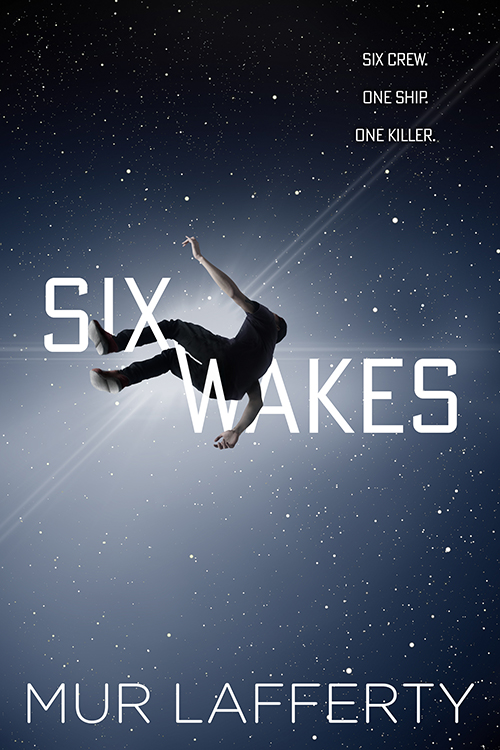 Six Wakes by Mur Lafferty is a science fiction mystery, one of the finalists for the Hugo Award for the Best Novel category of 2017.
Six Wakes by Mur Lafferty is a science fiction mystery, one of the finalists for the Hugo Award for the Best Novel category of 2017.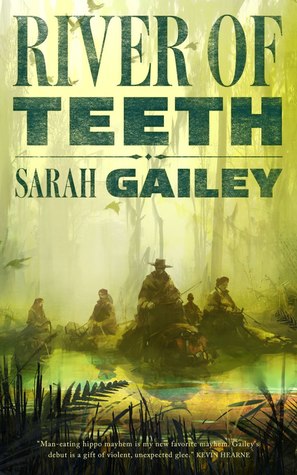 2.
2. 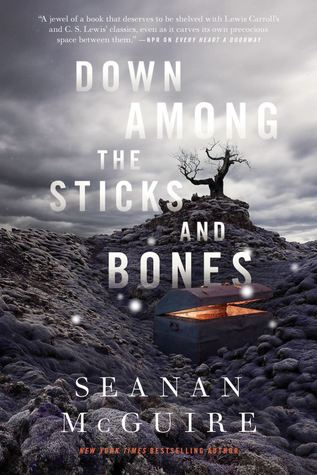 3.
3. 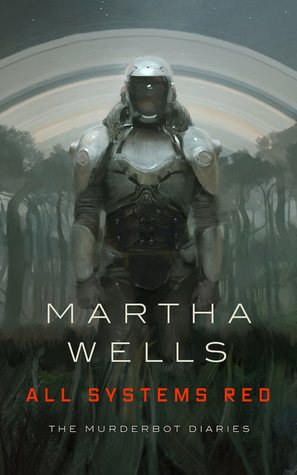 4.
4. 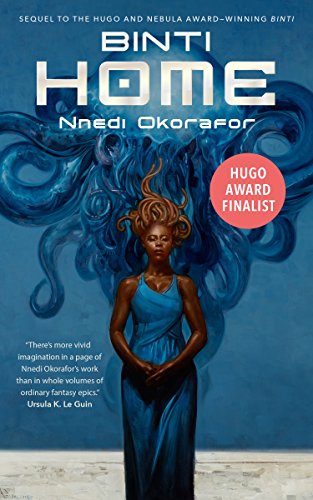 5.
5.  6.
6. 





































































